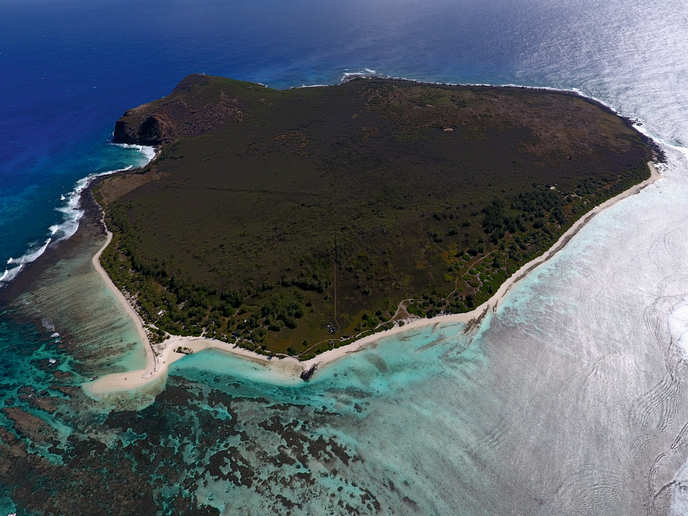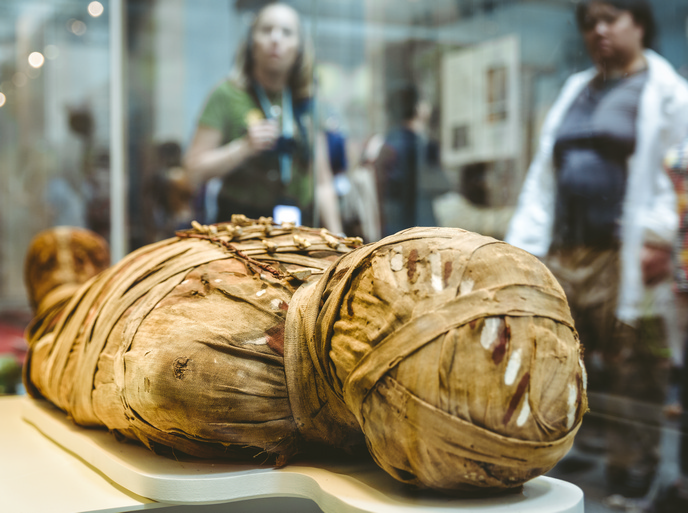Unearthing quarantine measures in colonial Mauritius
During the eighteenth and nineteenth centuries, advancements in transportation alongside large-scale population movements facilitated the widespread transmission of epidemic diseases. In response to these health crises, policies and infrastructure for confinement and quarantine were introduced. However, these measures over the centuries were not solely motivated by medical concerns, but also served political and social purposes – often leading to discrimination.
Insight into the Mauritius quarantine station
Undertaken with the support of the Marie Skłodowska-Curie Actions(opens in new window) (MSCA) programme, the ISLand project focused on Mauritius as a case study of the historical evolution of epidemic disease management amidst significant human intervention, as well as environmental and social transformations. “Our study was conducted through the lens of historical archaeology, offering compelling evidence of how public health management intersected with discrimination and segregation, particularly among marginalised groups,” outlines MSCA research fellow Alessandra Cianciosi. The focal point of the investigation was Flat Island – a small uninhabited island in Mauritius – that was used as a quarantine station by the British Empire from 1856 to the 1920s. Through a comprehensive examination(opens in new window) of historical records, including maps and medical reports alongside extensive surveys and excavations, the project uncovered profound insights into the organisation of the quarantine facility. Furthermore, it shed light on the unequal treatment of various social groups and genders, and the evolution of quarantine practices over time.
Global impact
Through a GIS StoryMap(opens in new window) the project not only mapped Flat Island’s function as a confinement institution, but also provided invaluable contributions to understanding Mauritian cultural heritage. Beyond its local implications, ISLand's findings resonate on a global scale, enriching discussions on colonial legacy and decolonisation processes, particularly within the Indian Ocean context. Moreover, the project’s research has unearthed evidence on how public health measures were instrumentalised to reinforce discrimination and segregation of certain social groups and communities during colonial times. Moving forward, ongoing collaboration with local stakeholders will focus on the exploration of the quarantine cemetery, aiming to collect bioarchaeological data to highlight the health conditions of those who died during their quarantine period. These findings will be compared with similar data from contemporaneous cemeteries across Mauritius, enhancing our understanding of historical health dynamics.
Rediscovering forgotten history
Despite its historical significance – particularly in the lives of thousands of migrants and indentured labourers – the Flat Island quarantine station had been forgotten until the ISLand project brought it back into focus. According to Cianciosi: “The current challenge lies in managing this history sensitively, integrating it into Mauritius’ multicultural identity, and presenting it to visitors without perpetuating colonial narratives or from a Western perspective.” Ultimately, the lessons gleaned from historical processes, alongside responses to health crises and migration management, offer valuable insights for crafting contemporary strategies aimed at mitigating social inequalities and discrimination. Expanding on these insights and sharing them widely will not only enrich our understanding of the past but also inform present-day efforts to address contemporary health challenges and promote social justice. Through projects like ISLand, we can bridge the gap between history and the present, fostering a more inclusive and equitable future for all.







